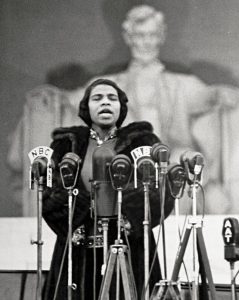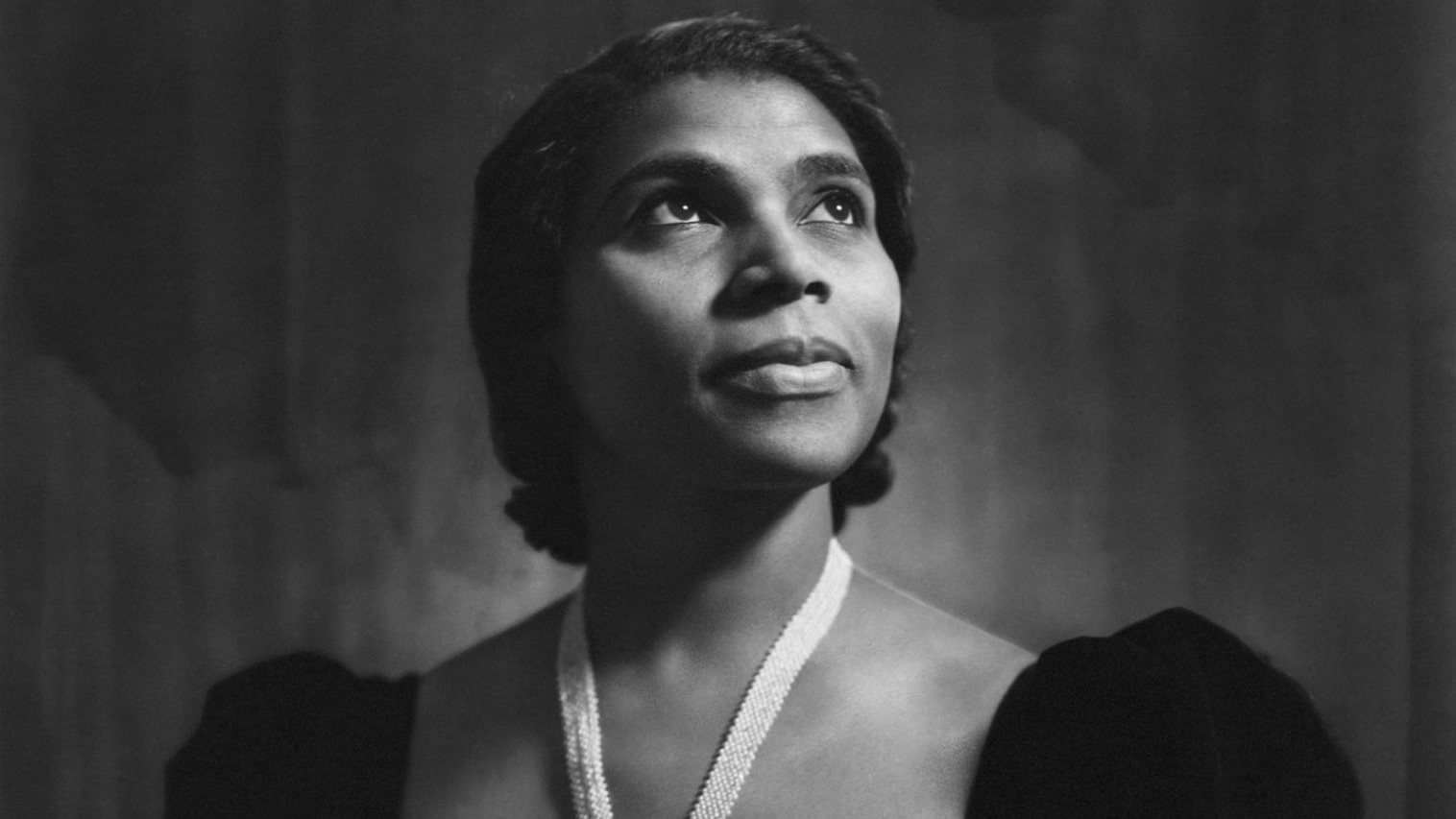Marian Anderson: Validating Her Existence
Words by Okara Imani
Joshua and Angela’s discussion of Marian Anderson’s career, in Melanated Moments in Classical Music podcast’s Season Two, Episode 5 “Accidental Activist” primes your mind’s canvas for this picture of perspective: a world in which a Black woman is validated in her existence, whether in excellence or mediocrity, rest or resilience, strength or softness — framed authentically by mainstream media and society as a whole, seen. Having a bit of trouble conjuring that landscape? That makes two of us. As this is such a large part of the Black woman’s experience in America, so it is in its industries; music being one close to us both, I presume.

Angela shared that ‘Baby Contralto’ Marian, dubbed so at age six by her church choir, would put on small concerts with her fellow Union Baptist musicians and save the money earned for private lessons. These were for an audition into a particular arts school that ultimately turned the child away ‘cause they ‘don’t take Coloreds’; a realization that launched the young singer’s studies and performance overseas. She continued honing her craft and building a career in Europe alongside her contemporaries, albeit not without its particular blend of racism and adversity, but successfully. When Marian was finally called upon professionally back home — wouldn’t you know it — she was faced with staunchly segregated audiences.
Now, what’s an artist to do? Not perform, due to one’s ill-treatment or discomfort in the face of discrimination, or sip the scalding bittersweet tea of success in an industry that seeks to both exclude and extort your talents? When I pictured Anderson’s career-making a full circle — from that first experience of othering, of invalidation as a child, back to segregation and discrimination as an adult — I muse that her thoughts may have been much like this. I imagine that her emotional processing may have been much like mine when the world was secluded in their homes and had no choice but to see, in horrifying technicolor, just how far we have not come in social justice — just how much disregard there still is for black bodies.
As I listened further, I realized that I very much identify with personal activism that compelled an older, more established Marian Anderson to take a moment to deeply and profusely bow to her audience: the Black folks relegated to the balcony or off to the side. The white audience seething at the obvious deference given to her people even with the platform upon which they designed to allow her to stand. I feel personally validated when I hear, back in 2019, that the wordsmith and rapper NoName has declined to tour any further due to the implications of an overwhelmingly white audience in the crowds. To see her start a massive Black woman-led book club for her fans to participate in during 2020 in her stage absence just felt so right. I am proud and assured when young Naomi Osaka draws hard boundaries between her momentous career and her innermost self, which she seeks to protect from the entitlement and privilege of the very white realm in which she exists.
As I write this I begin to form a new language to express how I — and perhaps Marian as well could identify with me here — personally enact activism. Is it social intentionalism, or civic intentionality maybe? For your official actionable engagement: I challenge you to open a new window, find your Black Lives Matter hub, and donate. For my fellow Hoosiers, that Indy10 or The Bail Project-Indy. Perhaps you’d find enrichment and sustenance in The NoName Book Club (@nonamereads), and — if you are a Black woman like myself– some kinship in building knowledge and understanding of the world around you. If you have a platform, speak your piece, so that someone who feels as you do may feel less alone and validated in their experience. All these are viable acts of activism because — as I’m certain Marian understood — Movements are made up of moments, and intention swings momentum.
Be well.







Leave a Reply